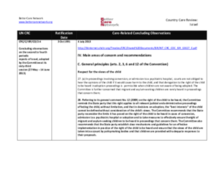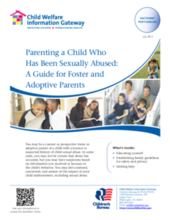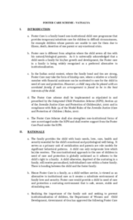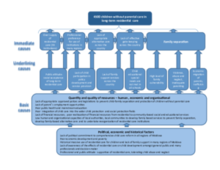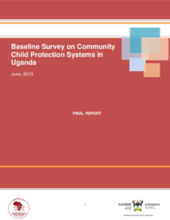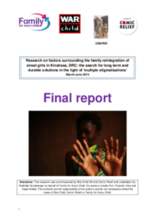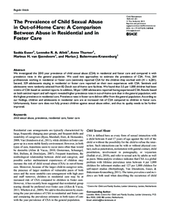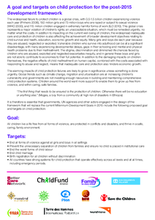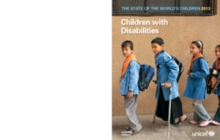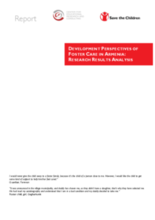Displaying 901 - 910 of 1090
This country care review includes the care related Concluding Observations adopted by the Committee on the Rights of the Child as part of its examination during the sixty-third session (27 May-14 June 2013) of Israel’s second to fourth periodic reports to the Convention on the Rights of the Child, as well as other care-related concluding observations, ratification dates, and links to the Universal Periodic Review and Hague Intercountry Adoption Country Profile.
This factsheet is designed for caregivers and discusses how they can help children in their care by educating themselves about child sexual abuse, establishing guidelines for safety and privacy in their families, and understanding when and how to seek help if needed.
The state cabinet of Goa in India has approved a foster care scheme to assist children deprived of parental care or of the care of guardians, and in need of protection. These government guidelines set out the purpose of the scheme, criteria for eligibility and procedures to be followed, including the relevant forms.
This graphic provides a visual representation of the causal framework of children’s institutionalization in Moldova. It was developed as part of the USAID/DCOF-funded project “Protecting children in Moldova from family separation, violence, abuse, neglect and exploitation.”
This report describes the process, findings and recommendations of the baseline survey for the project titled, “Building and Strengthening Community-Based Child Protection Systems in Busoga and Acholi sub-regions” commissioned by ANPPCAN. The baseline survey was intended to establish the status of project indicators so that the information obtained can inform the implementation of project activities.
This research looked at the factors affecting the family reintegration of girls in the Tshangu district of Kinshasa (DRC), an operational zone of the local NGO OSEPER, a partner of War Child for a 3-year project, seeking to address the needs of street-connected girls, including family reintegration.
Researchers investigated the prevalence of child sexual abuse in foster care and residential care facilities and found that 3.5 children per 1,000 had been victims of child sexual abuse.
This statement from a group of international and national agencies working towards children's protection include recommendations for the inclusion of a major goal and specific targets on children's care and protection as part of the framework that will replace the current Millennium Development Goals in 2015.
In its 2013 State of the World’s Children Report, UNICEF has chosen to highlight the particular issues, needs, and circumstances of children with disabilities worldwide. The report includes a description of the common issues that children with disabilities face, models for inclusive policy and practice, and an agenda for action moving forward.
This report produced by the Center for Educational Research and Save the Children summarises a broader research study which examined the foster care pilot programme introduced in Armenia in 2005. The study aimed to find out if the pilot program succeeded, what problems arose, how the program could be improved and how foster care in Armenia could develop and expand effectively.

